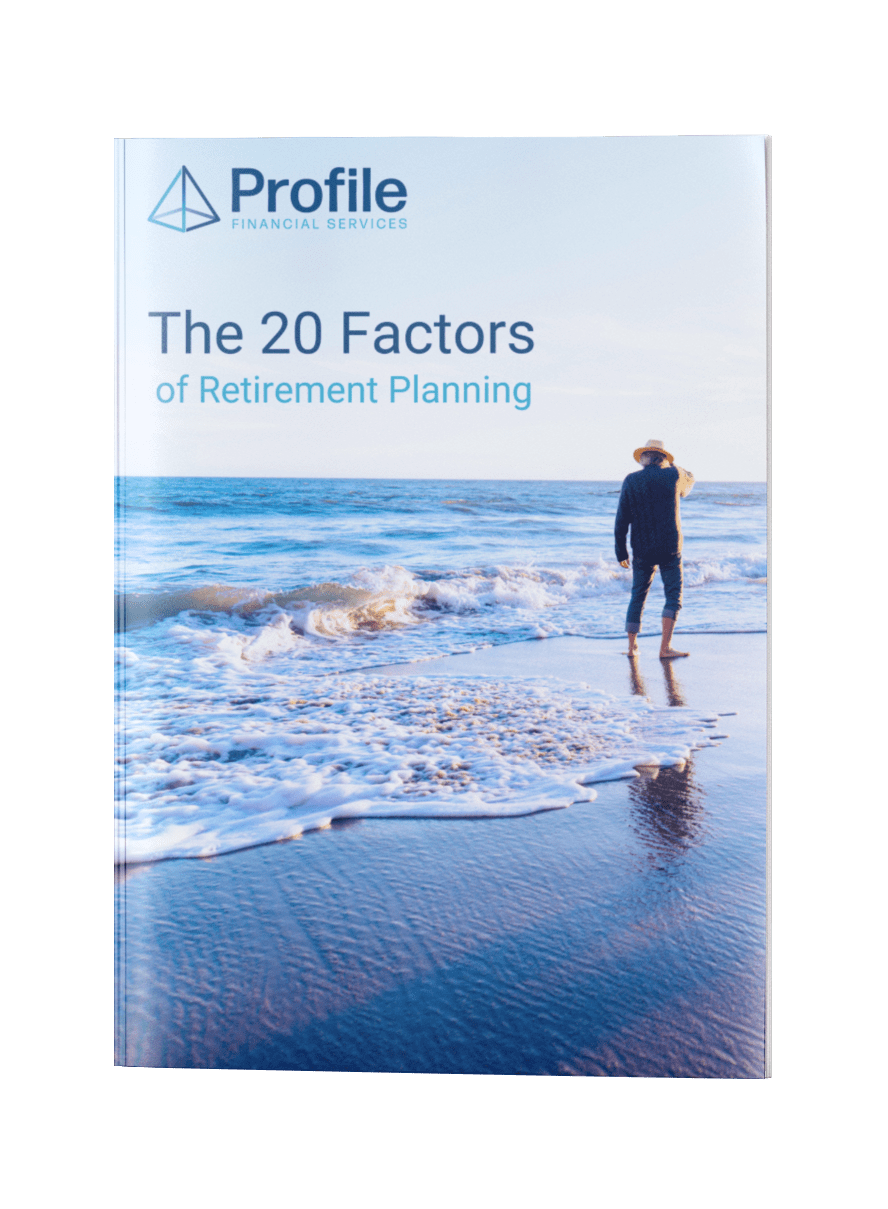How much money do you need to retire? You might as well be asking yourself how long is a piece of string!
Retiring with the right amount of money is obviously important, but can feel like a guessing game. There’s so many factors to consider, and it’s not a one-size fits all approach. So where do you start?
What your family or friends might have done for their retirement may not suit the way you and your significant other live. And the way you live life now might not suit the way you want to live in the future.
There’s a lot of us counting down to R-Day. In fact, in 2020 140,000 Australians retired, with their average age of retirement being only 64.3 years of age. (source)
With general health and care facilities improving, it’s likely we’ll be living in a world in the not too distant future where it’s common to be celebrating 100th birthdays. That means two things: firstly, we can’t all expect to make the local paper when we raise our bat and bring up our century; second, and more importantly, we need to plan on saving for a scenario where we live for 25-30+ years without working.
So, how much money do you need to retire?
Well that’s what we will try to help you with in this article. We’ll bring to light the numerous factors and considerations that you can think about and work through today. We’ll highlight a simple rule that you can follow, and you’ll learn a quick formula to take away and plan your finances with.
Overall, we aim to provide a concise overview of how to estimate the amount you need to retire, assuming you already own your home.
What factors affect how much money do you need to retire?
When you’re wanting to work out how much money do you need to retire, you want to understand several key factors. These in turn are applied to a formula which can provide you clarity over the final number.
Ultimately, when planning for retirement, it’s crucial to determine how much money you’ll need to sustain your desired lifestyle and cover your expenses.
This calculation involves various factors below:
-
-
- What age do you want to retire?
- The years you have until you retire (desired retirement age – current age)
- Your life expectancy
- Expected inflation rate
- Investment returns
- Current assets ie. property/stocks/currency/super/savings
-
What age should you retire?
To begin to work out how much money you need to retire, you fundamentally need to know how many years you have to save between now and retirement, and for how long these savings will need to last you.
Start by determining your retirement age as it affects the number of years you’ll need to support yourself financially. Retiring early might be nicer lifestyle wise, but puts the pressure on yourself between when you retire and now to save enough for the longer period out of the workforce.
Retiring at an older age may help with increased funds, but are you using valuable years with good health slaving away at a job you may not enjoy?
If you have a significant other, you’re likely considering their circumstances as well. If they are older, do you want to retire earlier to spend more time with them? Whether yes or no, it’s another important question to ask as it can lead to other decisions such as where you will live or what you plan to do in retirement.
Once you’ve landed on your ideal retirement age, take away your current age to give you how many years you have to save until you retire.
Time until Retirement Formula
Age you want to retire – Current age = Years until retirement
How much does it cost to live when you’re retired?
For our example in this article, let’s assume you plan to retire at age 65. The first step in estimating your retirement expenses is to evaluate your current spending patterns.
Review your monthly expenses and categorise them into essential (e.g., housing, food, healthcare) and discretionary (e.g. travel, entertainment). Consider any changes in spending during retirement, such as reduced commuting costs or increased healthcare expenses.
You may move to a location with significantly lower cost of living, as many people choose to be closer to the beach during retirement. Such decisions can have a positive impact on the amount needed to save. Especially moving from a higher cost of living area like Sydney to the Central Coast or Hunter Valley regions
Article continues below
How does inflation affect your retirement savings?
Now that we have a clear understanding of your current expenses, you’ll need to account for inflation over your retirement period. Historical data suggests an average inflation rate of around 2-3% annually. Apply this rate to your projected retirement expenses to account for the rising cost of goods and services over time.
This is very important when you want to know how much money do you need to retire as you can see in the following example.
In year one of retirement you have $50,000 in yearly expenses. All things being equal, with an annual inflation rate of 3%, these expenses would rise to $117,828 in year 30 of your retirement.
If you were to think “I need to cover $50,000 of expenses for 30 years” you may end up with a figure of $1,500,000 that you’d need for retirement. If you take into consideration a 3% inflation rate, you would actually need $2,379,000 in savings for the same period. That’s nearly $900,000 off what you could save.
And how long will two million last in retirement in the future anyway?
Put simply, you most likely don’t want to be 85 and realise that you’re $900,000 short of what you need.
Without proper planning, you may end up having inflation swallow more of your retirement savings than you initially expected.
If you’re worried about this, it’s best to talk to a qualified retirement planning professional about your options and specific situation.
What does retirement income look like?
Next, calculate your expected retirement income. Retirement income can come from many sources such as:
-
-
- Social Security benefits
- Defined pension plans
- Annuities
- Investment property rental income
- And many more
-
Your amount of retirement income will depend on your employment history and the benefits you’re entitled to receive. Consider consulting with a financial advisor or utilising online retirement calculators for a more accurate estimation.
Do I have a retirement gap?
After determining your retirement income, assess the gap between your expected retirement expenses and income. Any shortfall represents the amount you’ll need to cover from personal savings and investments. To calculate this, subtract your estimated retirement income from your projected retirement expenses.
Is this figure manageable? Do you have a plan on how you will cover this difference?
The question of how much money do you need to retire essentially boils down to the gap in your savings/retirement income, and the expenses you’ll incur during retirement.
We often find that it is much better for our clients to understand any potential shortfalls earlier, and plan accordingly to close this gap while they are still younger and in the workforce. Having a stress free retirement is often one of the top priorities for our clients, and a big factor in being stress free is having a solid financial plan and situation worked out.
The article continues below
The 4% Rule
One common rule of thumb for retirement planning is the “4% rule.” The 4% rule suggests that withdrawing 4% of your savings annually provides a reasonable chance of sustaining your retirement income over a 30-year period.
For example, if your retirement expenses are $50,000 per year, how much money do you need to retire would be $1.25 million in savings ($50,000 divided by 0.04) to meet this 4% rule guideline. However, keep in mind that the 4% rule is a general guideline and may not eventuate. Individual circumstances may warrant adjustments to withdrawal rates.
How does debt affect my retirement savings?
When calculating how much money do you need to retire, you’ll need to consider any outstanding debts, such as mortgages or loans. These payments and any interest that is applied to them can greatly affect how much you can save for your retirement.
If you have already paid off your mortgage, you can exclude this expense from your retirement calculations. However, if you still have mortgage payments, include them in your projected expenses.
You may find it helpful to speak to a qualified financial adviser if you have questions about debt and retirement planning. Seeking professional advice can be helpful and there may be more benefit strategies available to you, such as paying down debt earlier before saving, which could improve your retirement situation.
Do retirement savings grow with interest?
Yes, most likely! Your retirement savings will most likely grow between the day you deposit them and when you withdraw. This will ultimately depend on what investment instrument you select and the rate of risk that you can tolerate.
Overall it’s essential to consider investment returns and the potential growth of your retirement savings. Whilst saving is important, you don’t want to put undue pressure on you and your family today, only to realise you’ve overshot your retirement savings goal 10-15 years down the line.
Consult with a financial adviser to determine an appropriate rate of return based on your risk tolerance and investment strategy. Projecting future returns can help estimate how much you need to save today to achieve your retirement goals.
Bringing it all together
To summarise, what we’re trying to say is that saving for retirement is a complex and time consuming process. It’s basically trying to make decisions today about what your future self will want to do many years from now.
Ultimately, how much money do you need to retire comes down to working out the below:
-
-
- The amount of time between today and when you retire
- What age you want to retire
- How much are your retirement savings today
- Analysing your current expenses
- Accounting for future inflation
- Calculating retirement income
- Determining the shortfall
- Considering withdrawal rates
- Factoring in outstanding debts
- Projecting investment returns
-
While this article provides a concise overview, it’s advisable to seek personalised financial advice from a professional who can consider your unique circumstances and provide more accurate calculations tailored to your needs.
If you feel like speaking to one of our team please do not hesitate to visit our contact us page and request a free consultation.






